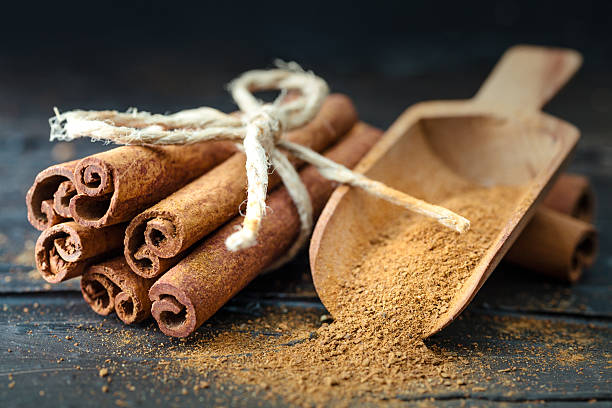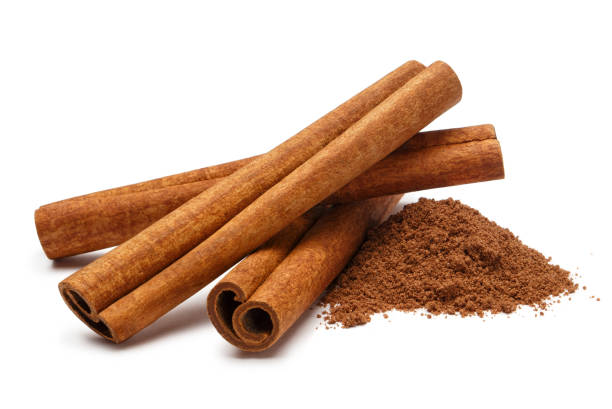Cinnamon is a spice that has been used for centuries in cooking and traditional medicine. It is made from the bark of trees in the Cinnamomum family and is available in both powdered and stick forms. Cinnamon has a warm, sweet flavor that makes it a popular ingredient in many sweet and savory dishes. But in addition to its culinary uses, cinnamon is also a nutrient-rich spice that has many potential health benefits. One of the most common questions people have about cinnamon is how many calories it contains.
A teaspoon of ground cinnamon contains about 6 calories. While this may not seem like a lot, it is important to remember that cinnamon is often used in small amounts as a spice, so the calories can add up quickly if you are using it in large quantities. For example, if you use a tablespoon of cinnamon in a recipe, that would add up to 18 calories. So if you are watching your calorie intake, it is important to keep track of how much cinnamon you are using in your cooking and baking.
In addition to being low in calories, cinnamon also has a number of other nutritional benefits. It is a good source of fiber, containing 1.1 grams per teaspoon. Cinnamon is also rich in antioxidants, which help to protect the body against the damage caused by free radicals. Some studies have suggested that cinnamon may help to lower blood sugar levels and improve insulin sensitivity in people with type 2 diabetes. It may also have anti-inflammatory and anti-clotting properties.
2 grams of dietary fiber
0.06 grams of protein
0.02 grams of fat
4.06 grams of carbohydrates
0.2 milligrams of manganese (10% of the daily recommended intake)
0.1 milligrams of vitamin K (1% of the daily recommended intake)
Cinnamon also contains small amounts of other vitamins and minerals, including iron and calcium.
Cinnamon has been traditionally used to help with a wide range of ailments, including:
Helping to regulate blood sugar levels in people with type 2 diabetes.
Helping to lower cholesterol levels.
Helping to reduce inflammation.
Helping to improve brain function.
Helping to improve heart health.
Helping to reduce the risk of certain types of cancer.
Helping to reduce the symptoms of Alzheimer’s disease.
One of the key compounds in cinnamon that is thought to be responsible for its health benefits is a type of antioxidant called cinnamaldehyde. This compound is responsible for the distinctive flavor and aroma of cinnamon and has been shown to have anti-inflammatory and antimicrobial properties. Other antioxidants found in cinnamon include proanthocyanidins, flavonoids, and phenolic acids.
While cinnamon is generally considered safe to consume, it is important to use it in moderation. Consuming large amounts of cinnamon can be toxic, and can cause symptoms such as:
Mouth sores
Swelling of the face, lips, tongue, and throat
Difficulty breathing
Hives
It is also not recommended to take large doses of cinnamon supplements as they may cause adverse effects such as low blood sugar, liver damage, skin irritation, and allergic reactions.
Cinnamon is also a good source of manganese, which is a mineral that plays a key role in bone health and the metabolism of carbohydrates, proteins, and cholesterol. A teaspoon of cinnamon contains about 0.1 milligrams of manganese, or about 4% of the daily value for this mineral.
Another benefit of consuming cinnamon regularly is that it may help to improve brain function and cognitive performance. Studies have shown that cinnamon can increase the activity of a neurotransmitter called acetylcholine, which is involved in memory, attention, and overall cognitive function.
In conclusion, Cinnamon is an excellent and low-calorie food. It is a good source of fiber, antioxidants, and various other essential minerals. It may help to lower blood sugar levels and improve insulin sensitivity, as well as provide anti-inflammatory and anti-clotting properties. It may also help to improve brain function and cognitive performance. However, it is important to consume it in moderate amount due to the presence of the compound called coumarin.

 Home
Home Health
Health Diet & Nutrition
Diet & Nutrition Living Well
Living Well More
More













